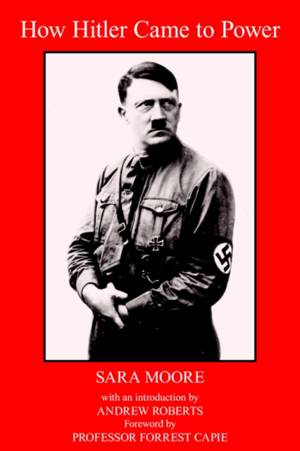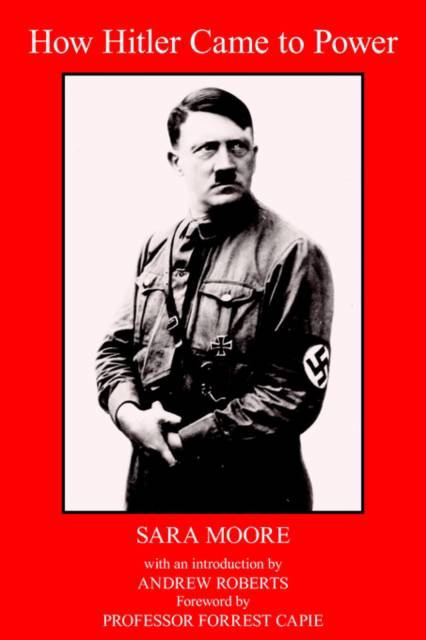
- Afhalen na 1 uur in een winkel met voorraad
- Gratis thuislevering in België vanaf € 30
- Ruim aanbod met 7 miljoen producten
- Afhalen na 1 uur in een winkel met voorraad
- Gratis thuislevering in België vanaf € 30
- Ruim aanbod met 7 miljoen producten
Zoeken
Omschrijving
President Woodrow Wilson made a dreadful mistake in 1918 when he disregarded military advice and the wishes of the American people and forced the allies to accept a conditional peace, rather than insisting on the German army's unconditional surrender. The Allies were too weak to enforce the Versailles Treaty and soon became open to German propaganda that it was onerous and unfair. Yet newly uncovered statistics reveal that by 1925 Germany's economy was stronger than before the Great War. The German people voted for democracy and a pacifist agenda in 1928. Yet Alfred Hugenberg, Chairman of the bellicose Pan German League before the War and now newspaper magnate and leader of Germany's second largest political party, maintained that dictatorship could still be achieved legally in Germany 'if the condition of the country seems to warrant it'. He put Hitler on the committee of his newspapers' virulent campaign against the reparations, which gave him massive publicity. Meanwhile fellow Pan-German armaments maker Gustav Krupp agreed to sell Stalin arms and help him create giant farms to grow wheat to pay for them, provided that Stalin forced the German Communists to vote against the Social Democrats in the Reichstag. Stalin's wheat would devastate the world's agricultural economy, while the German Communists voting with Hitler, helped torpedo German democracy. Ex-army officer, Heinrich Brüning, became Germany's Chancellor in 1930 and planned to rid Germany of war reparations and secure re-armament and a Presidential regime, by swamping other nations with exports, while stifling home consumption. Taxes rose dramatically and unemployment soared. In the 1931 banking crisis, Brüning secured a reparations payments moratorium, despite Germany being the world's largest exporter, by pointing to the misery and unemployment of the German people. Their plight worsened in 1932. Hitler won a landslide victory at the polls through his defiance of the Versailles treaty. Both Left and Right supported him. Stalin expressly ordered the Communists to destroy the power of the Social Democrats while Hugenberg persuaded the Right that Hitler was the man who could save Germany from Communism. Only a short time later President Hindenburg allowed Hitler to become dictator. Hugenberg had proved in four short years that a popular dictator could come to power in Germany legally 'if the circumstances warranted it'. Yet he and the others who helped Hitler's rise seem to have escaped all censure.
Specificaties
Betrokkenen
- Auteur(s):
- Uitgeverij:
Inhoud
- Aantal bladzijden:
- 340
- Taal:
- Engels
Eigenschappen
- Productcode (EAN):
- 9781420885576
- Verschijningsdatum:
- 25/01/2006
- Uitvoering:
- Paperback
- Formaat:
- Trade paperback (VS)
- Afmetingen:
- 152 mm x 229 mm
- Gewicht:
- 498 g

Alleen bij Standaard Boekhandel
+ 57 punten op je klantenkaart van Standaard Boekhandel
Beoordelingen
We publiceren alleen reviews die voldoen aan de voorwaarden voor reviews. Bekijk onze voorwaarden voor reviews.











